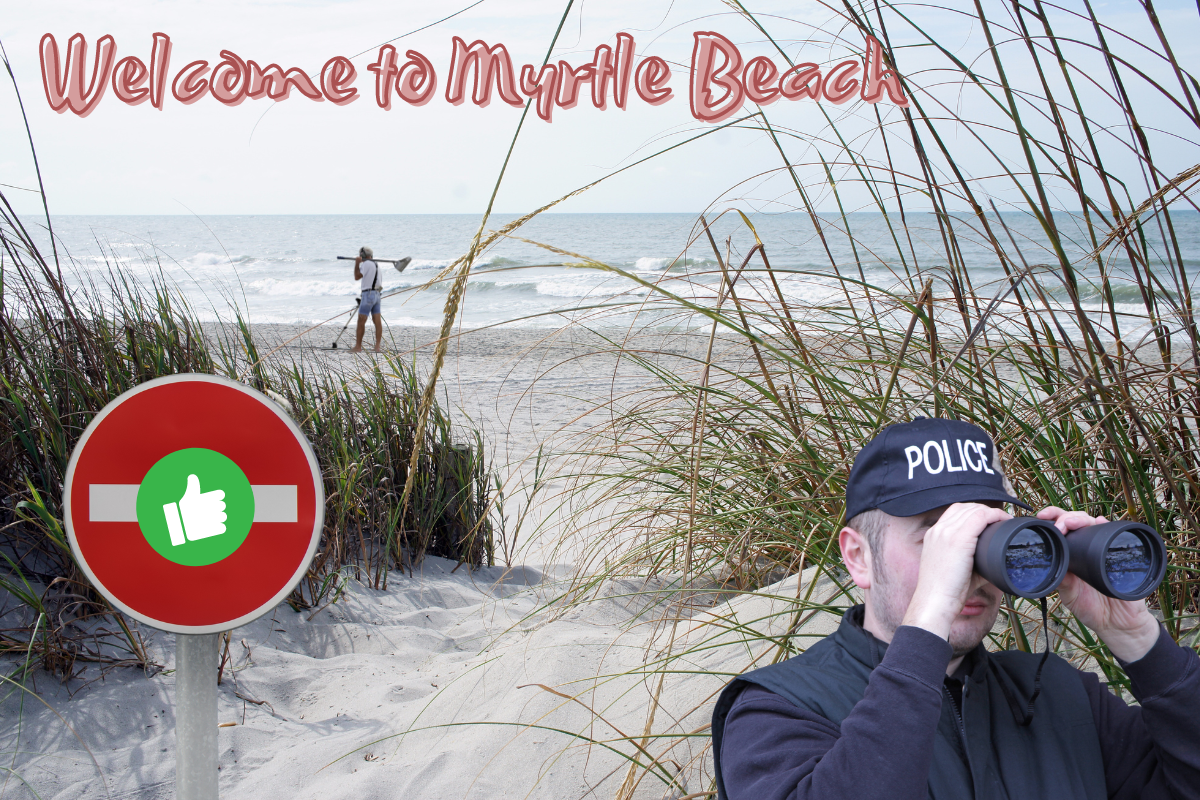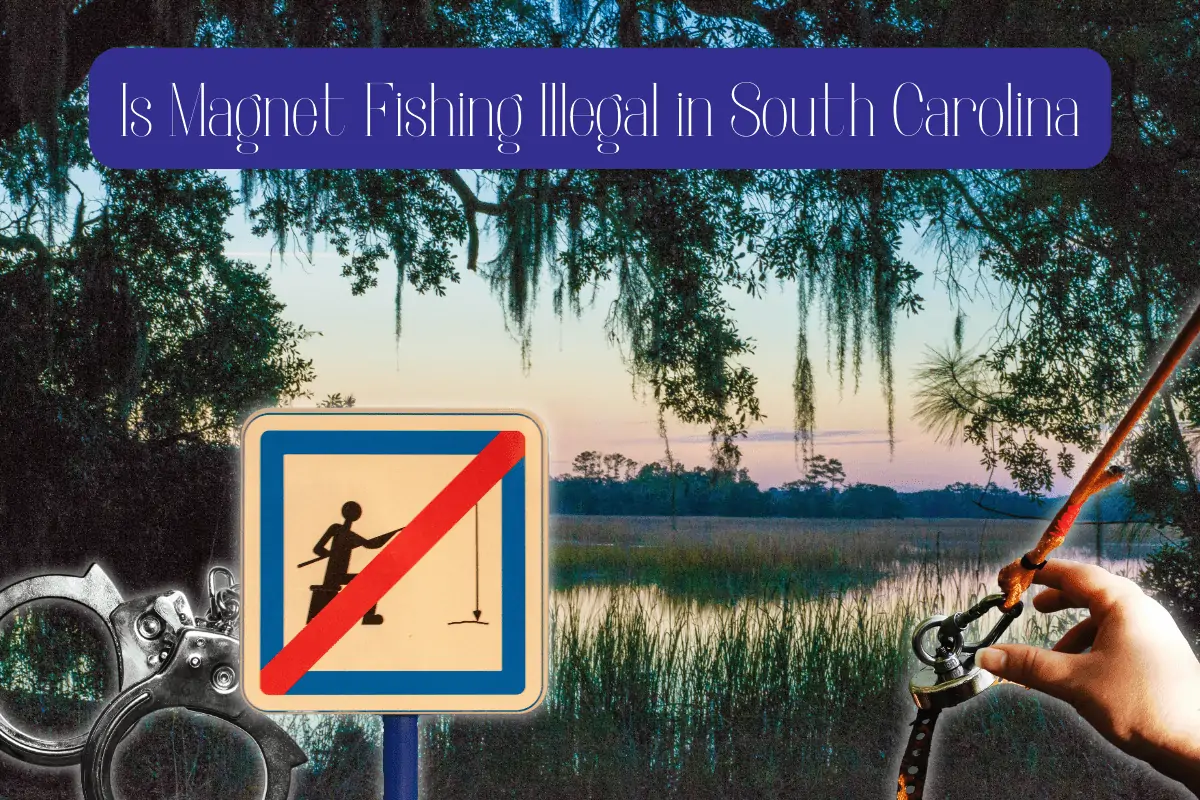You have brains in your head. You have feet in your shoes. You can steer yourself any direction your choose.
Dr. Seuss
Hey Diggers!
Are you looking for inspiration to find a new hot spot to metal detect? Or maybe you’re new to hunting the hidden treasures of history and don’t know where to start.
Chances are you’ve already had some advice on where to go next. And you might have heard some of my suggestions before. But I guarantee you’ll feel confident in all your options when you’re done reading.
So jump in, take notes, and open your mind to all the possibilities.
Best Places to Metal Detect

Everyone tells you to start at the beach, the park, or in your own backyard. None of these are wrong.
But you should understand why these places for metal detecting are being suggested. It may help you think of other options right below your nose.
I’ve had incredible metal detecting experiences over the years and gathered knowledge from friends and mentors with each successful hunt.
I’ve spent countless hours researching every last place to metal detect near me, as I believe that you don’t always have to cross state lines to get to the good stuff.
After gathering this wealth of information, I’ve compiled a list of nearly 40 different places to metal detect. Most of which can be found close to home.
I won’t go over every single one in detail, but I put together this fancy little table for you. Just pick the target you’re looking for and trace your finger down for all the locations you can explore.
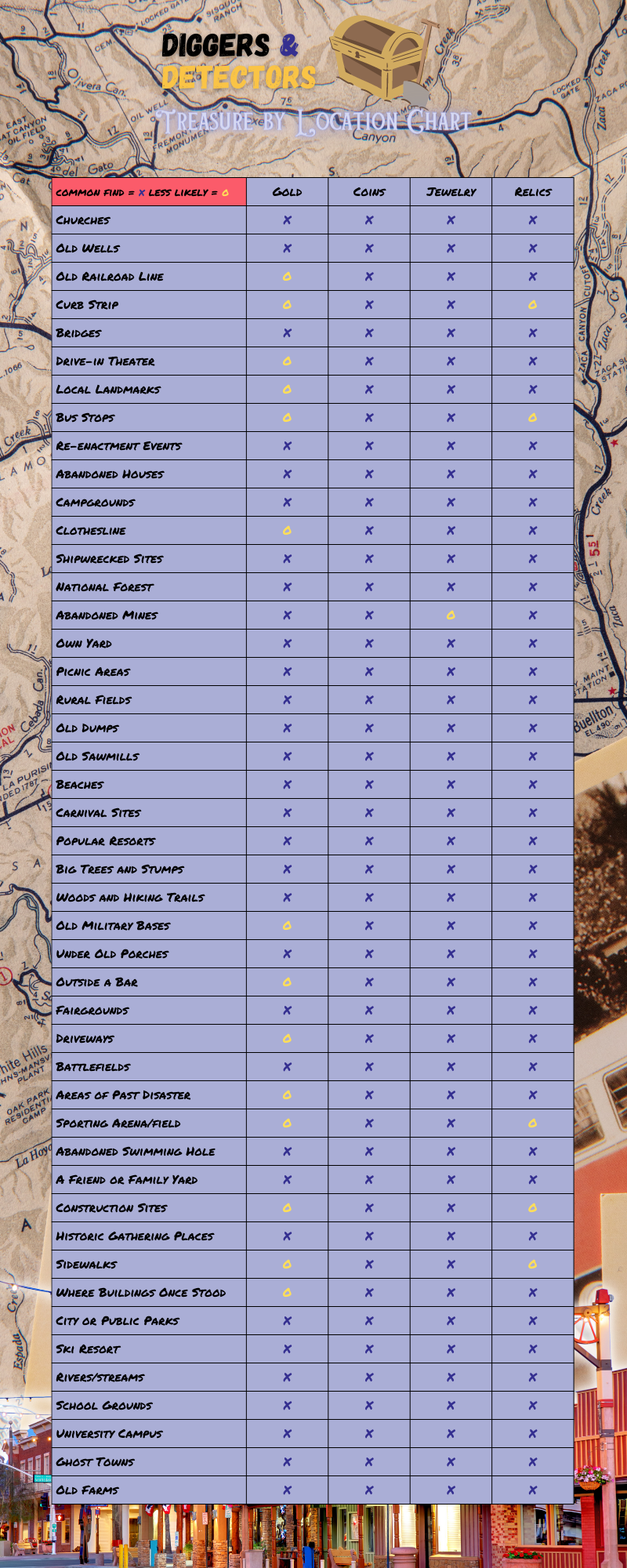
I want to clarify that while I may have marked some places as less likely to find a particular item, it doesn’t mean you can’t. The other items are just more prevalent.
If you’re looking for some quick wins, follow along, and I’ll go over my 5 favorite local places for metal detecting.
But first, I have to add a little disclaimer.
If you’re an experienced detectorist, you probably already know most of the rules, if not all of them.
But if you’re new to metal detectors, be careful where you hunt. Never start a search on private property without getting permission first. Preferably written permission.
You should also be aware of national, state, and city regulations for metal detecting. I cover this thoroughly in my article about metal detecting places in Massachusetts.
While it covers laws specific to the Bay State, the policies and guidelines for metal detector restrictions are usually the same throughout the US.
We’ve got that out of the way, so let’s get to the good stuff!
Here are my 5 best places to metal detect for a quick win (in no particular order).
Your Own Yard

Ok, this one is kind of a given, right? But you’d be surprised how many new treasure hunters forget to start right in their own backyard.
I’m serious! What better way to learn how to use your new Garrett metal detector?
Maybe you only find some loose change or those old Hot Wheels cars your son lost last summer. But you won’t know until you try first.
You could uncover something valuable, especially if you live on an older property.
Do a little research about your area. When was it first settled? Is there any historical significance to your town? Are any battlefields nearby?
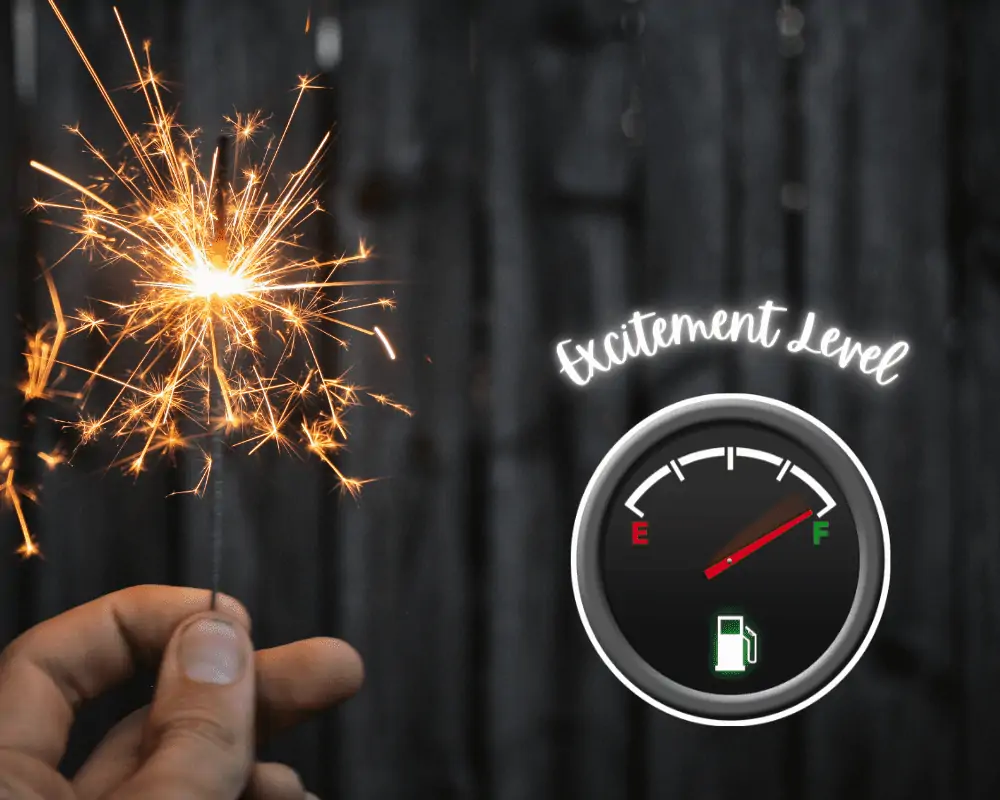
The answer to these questions could lead to that initial spark, a spark that raises your excitement level. Who knows what may have been left within your property line?
If you still think it’s a waste of time, check out these impressive backyard metal detecting finds. Then tell me it’s a waste of time.
Ghost Towns
Yes, ghost towns are a great place to metal detect.
And don’t confuse it with a custom-made haunted house on some farmland. There are plenty of those around Halloween.
No, I’m talking about genuine ghost towns, like abandoned land where you can still find structures from a long-gone population. There’s no telling what you might encounter with that much real estate to cover.
Everything from old coins and jewelry to gold nuggets and valuable relics is waiting to be rediscovered.

The only problem you may have is getting permission to go digging on the land.
Many old ghost towns have been converted into tourist attractions. Even the untouched ones likely have an owner you need to settle with first.
Sounds promising so far, right?
Well, it is. And don’t think you aren’t close to an abandoned town just because you live around a Walmart or Target on every other corner.
Every state in the US has at least one.
Here’s a list of one ghost town in every US state to get you started on your search.
Churches

Alright, don’t judge me too quickly. I know it may sound blasphemous, but it’s not. As long as you are respectful.
You’ll find a lot of metal objects around church grounds, especially older ones.
In the past, churches were the best place to have an event. Any event you can think of was held at church.
Whether it was a wedding, a funeral, a community picnic, a social gathering, or just an ordinary Sunday Mass. Churches were (and some still are) a focal point in society.
Churches as old as the colonies are sure to have centuries’ worth of lost items you can hunt for. Even the churches that reside around a cemetery offer an incredible opportunity.

And before you freak out about metal detecting on cemetery grounds, just listen.
It has many benefits, as long as you do it right. You have to get permission (obviously) and show respect to the deceased and their families.
Don’t disturb the graves themselves; you just want to search around the plots and neighboring areas for any low-hanging fruit.
Metal just below the surface — not six feet deep!
Read my article for more details on getting permission to metal detect on church grounds and other benefits of hunting around cemeteries.
You’ll learn the proper way to metal detect in such a sensitive area and who to ask for permission.
Where Buildings Once Stood
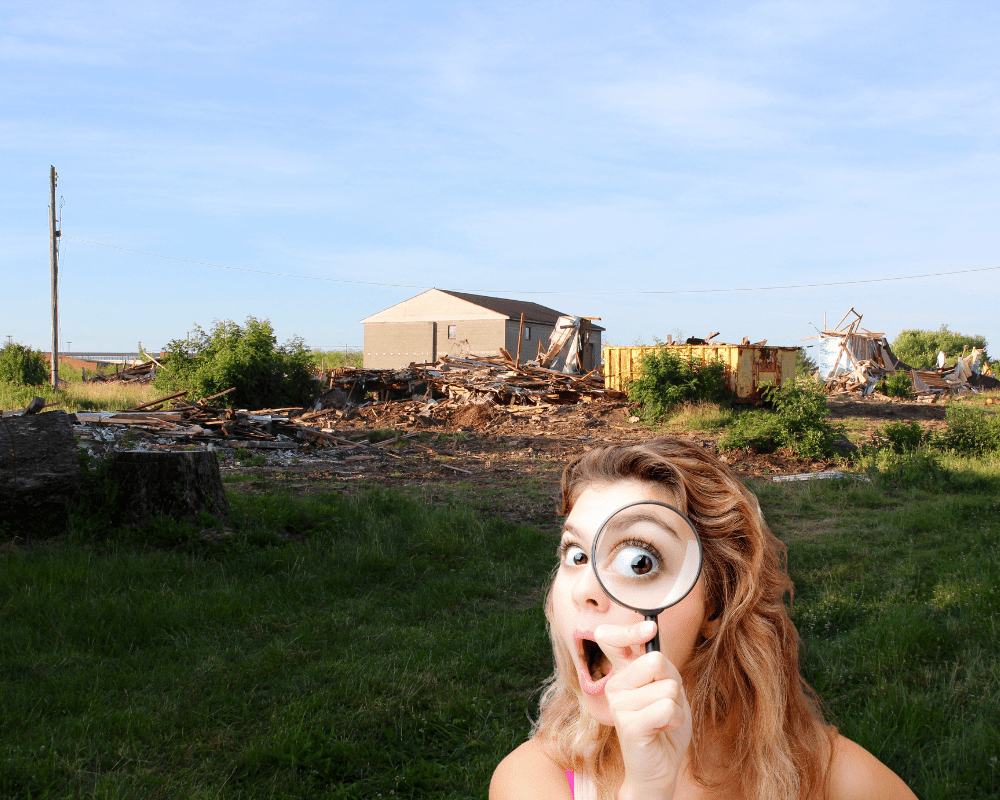
A lot can change in 50 years. Even more can change in 100 years.
One of the best places to metal detect is on land that was once a place where people gathered in buildings.
This could be a home, a barn, a market, or even an old sawmill.
The trick is finding where these buildings once were. And there are plenty of ways to do that.
I covered many of them in my post about finding your property lines. But to summarize the basics, you have some free methods to try.
- Ask older local residents about the town’s history. Most people will be glad to talk about their youth and what once was.
- Inquire about land deeds and plat maps at the county office. You never know if a spot of empty land was once home for a family.
- Check the local library for old newspaper issues. You might get lucky and find a story on the destruction or demo of a building that was never rebuilt.
- Use Google Maps satellite view to compare images to present-day structures. Google Maps isn’t always showing you the most recent snapshot. Some photos may be years old and show signs of life that you wouldn’t see today.
While all of these tips will get you started, you’ll need to do more groundwork when you get to the property.

Look for visible signs that show a history of structures or former residents.
This could include worn-down grass from old tire marks. Or the decaying foundation of what could have been a barn used 50+ years ago.
Even something as simple as the rusted end of a metal pipe could indicate an old clothesline.
All of this should tell you you’re in the right spot to start hunting.
Curb Strips
Believe it or not, this is a popular one. But most beginners don’t know about it.
A curb strip is that little sliver of land between a sidewalk and the curb of a street.
Sometimes the curb strip is only a couple of inches wide. Other times it is several feet wide.
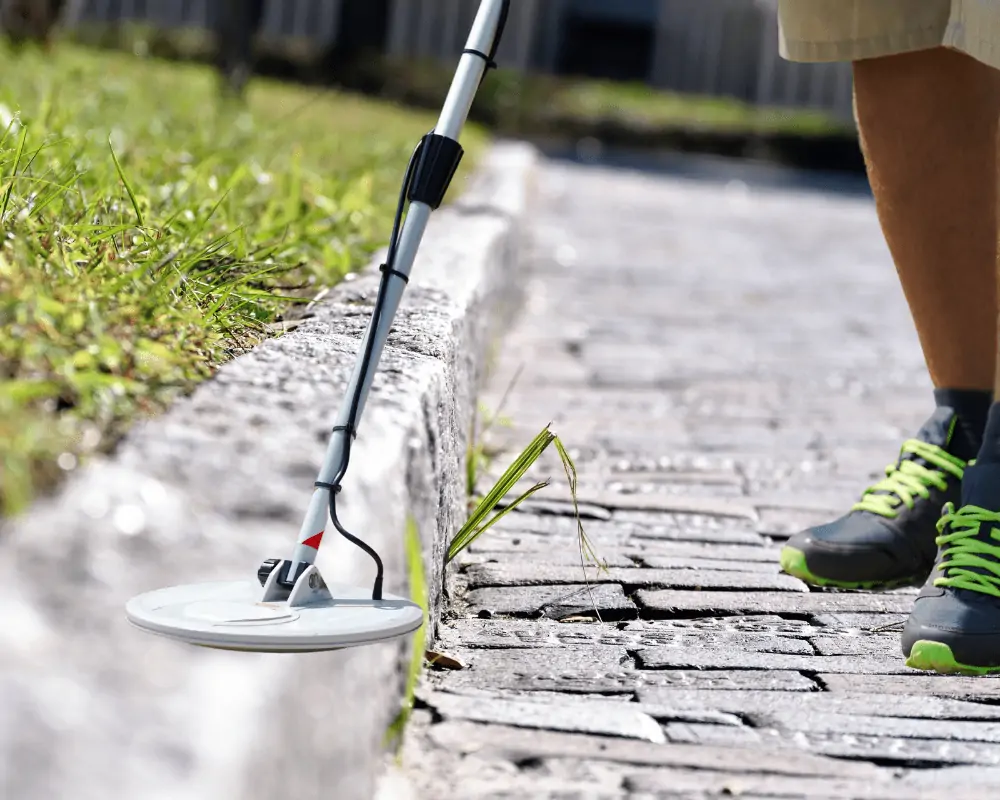
A curb strip is one of the best places to metal detect because you often don’t need permission. Even if the part of the curb is right in front of a stranger’s private property.
But to be on the safe side, you should do some investigation first. In some cases, the curb strip can be owned by the homeowner.
However, most of the time, it’s considered public property owned by the municipality.
Think of all the lost coins and jewelry you could find along the sidewalk.
From joggers and walkers to kids waiting for the bus and block BBQs, a curb strip see’s a lot of action.
If you aren’t sure who owns the curb strip in your area, just check with the local government (city).
And you verify that you can use your metal detector here, be prepared for some possible confrontation. Even though it is legal to metal detect the curb strip, there’s a good chance the neighbors won’t appreciate it.
Where is the Best Place to Metal Detect for Gold?
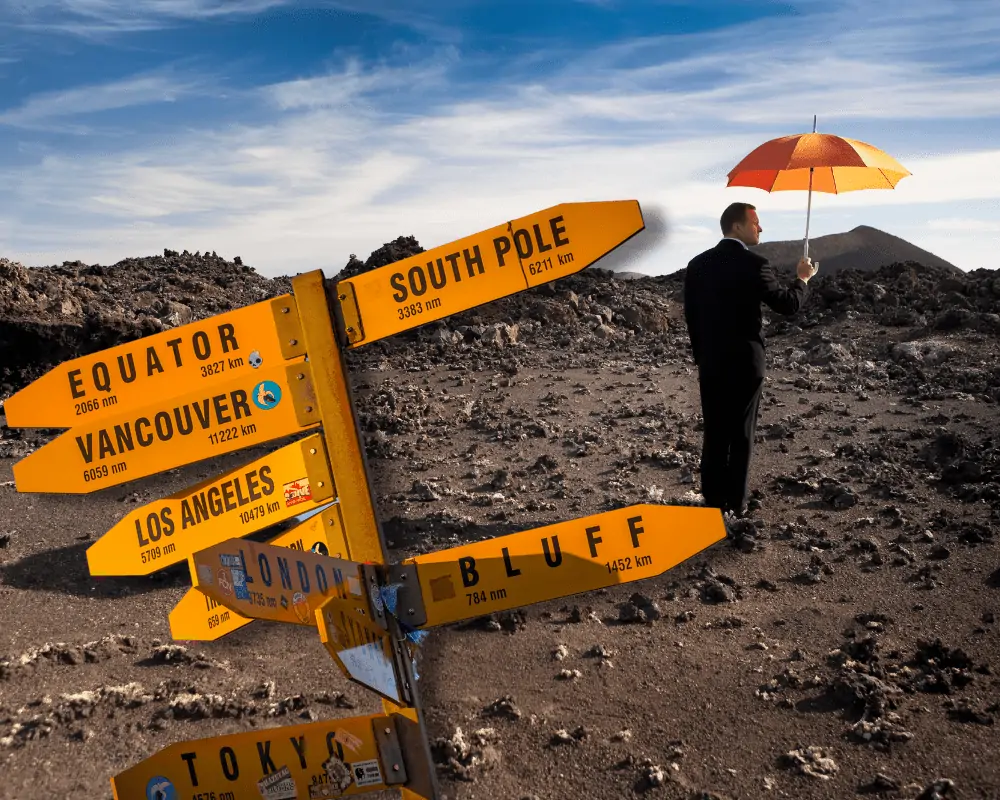
Not every location is ideal if you’re targeting gold with your metal detector. You’ll want to be more selective about your dig site.
Stop me if you’ve heard this one before.
The best place to find gold with a metal detector is where it’s been discovered before.
Sounds simple, doesn’t it?
Well, gold is a little harder to come by. It’s not as abundant as iron. If iron was as valuable as gold, we’d all be filthy rich.
Don’t get me wrong, there’s still plenty of gold to find. You just have to do the work to give yourself the best odds of finding it.

Looking for undiscovered gold where it’s been reported before is best because you know you’re in the right area.
Here are some tips to help you find success.
- Don’t ignore old mining sites that are now abandoned. Doing this is a mistake.
- Also, learn a little about geology if you’re serious about gold detecting. There are some clear signs (granite rocks) that will indicate gold is nearby.
- Use the proper metal detector. Each detector has different strengths and weaknesses. Know which gold detector is best for you.
- Check online resources for gold discoveries or evidence of gold mining. Government agencies keep historical records on mining reports and geological statistics. Google Maps will help you find clues to mining ventures left for dead.
How Deep Do You Have to Dig to Find Gold?

You won’t have to dig far for gold with a metal detector. However, much of the world’s gold will be found further down than your metal detector can detect.
According to the United States Geological Survey, about 244,000 tons of gold have already been discovered. And the US ranks 4th most in gold production as of 2016.
If you’re using a pro-level metal detector like the Minelab CTX 3030, you can expect to dig anywhere from 10 to 15 inches deep.
That is the average range this specialized device can locate targets.
But that doesn’t mean you’ll have to dig that far every occasion.
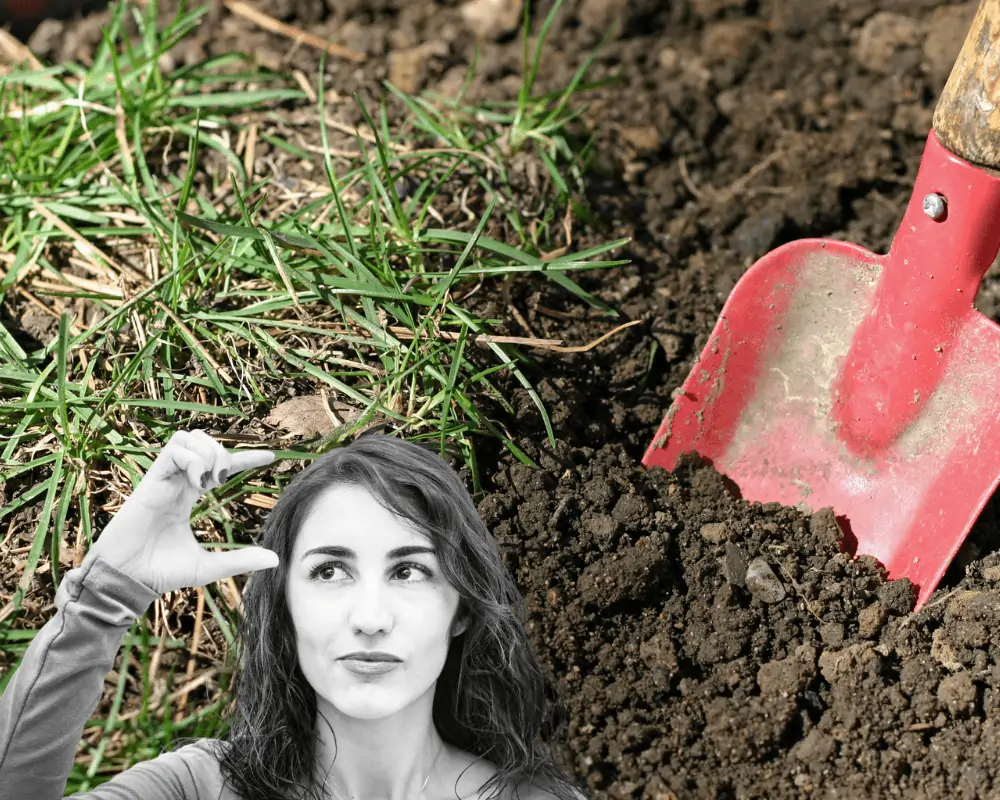
If you research gold-rich areas and how best to recognize the signs that gold is near, you may only have to dig a few inches at most.
This depends on the type of mineralization you encounter and other environmental factors.
Where is the Easiest Place to Find Gold?
The easiest place to find gold is near running water.
Much of the world’s readily accessible gold is locked within quartz rocks and other minerals.
With enough time and pressure, water will eventually chip away at those rocks, causing the gold to break free.
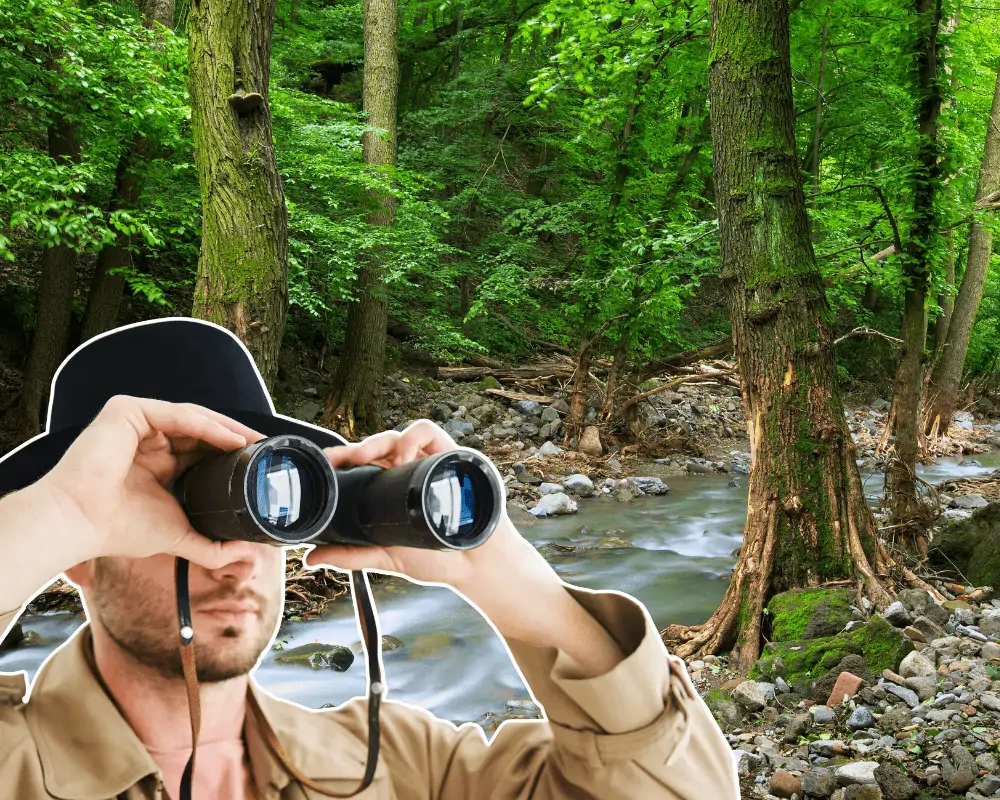
The water carries these gold flakes and nuggets until finally settling where the current isn’t as strong.
It’s here where you can find gold the easiest.
You should start hunting in the slow-current areas of rivers along the edges of the river bank.
Gold often rests in wet dirt, buried by heavier water flow caused by rain storms.
If you don’t mind getting wet, take your metal detector and sweep along the bottom of the river. With a lack of steady current, the gold tends to rest undisturbed.
Best Places to Metal Detect for Jewelry
If it’s jewelry you’re after, you won’t have to go far to find it.

Think of a place where people get together. This could be a park, a sporting event, or a camping ground.
Jewelry can be lost without much effort. So if you plan to metal detect at a place that is or was popular, chances are you’re going to find some jewelry.
For me, the best place I go to metal detect for jewelry is the beach, streams, and the occasional civil war re-enactment.
The beach is a treasure trove of lost jewelry and coins. You just have to know when to go and where to look.
But we’ll get more into that in a minute.
Streams are great, especially ones that run under bridges at some point.
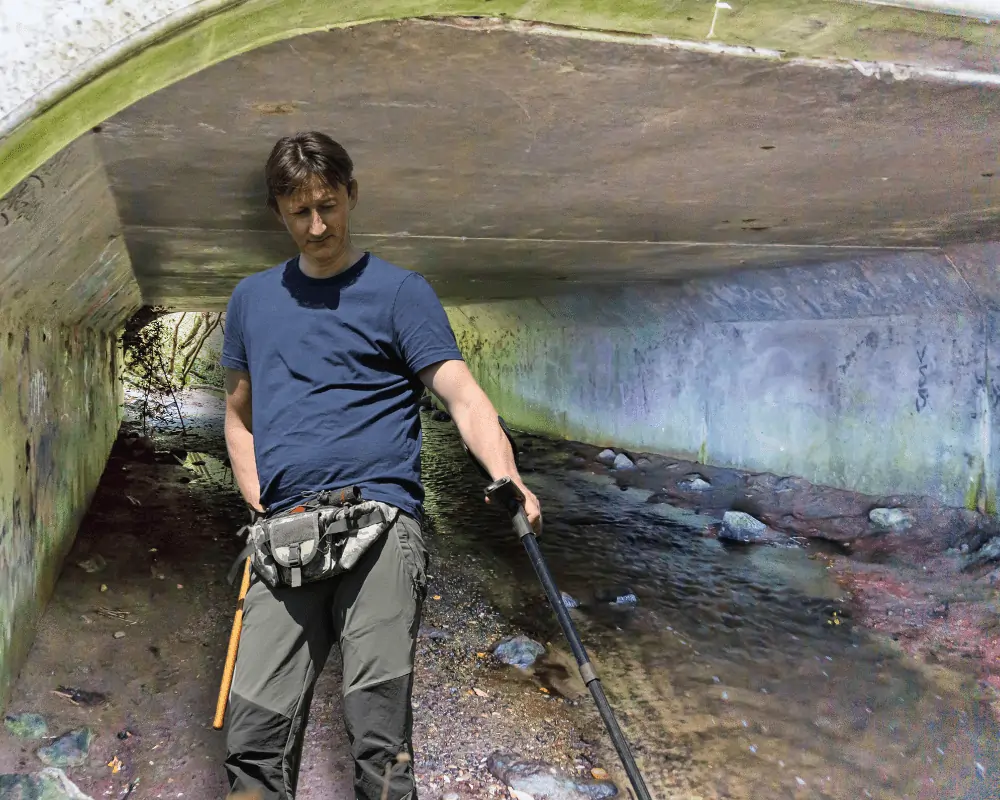
Thanks to those who love being on the water, there are some unique finds in rivers and streams.
Whether a group fishing downstream or some kayaking adventurers camping along the river bank, items will get misplaced.
I’ve seen iPhones, a guitar, a motorcycle helmet, and more gold and silver jewelry than I can handle.
If you pick a stream to metal detect funneled by much more populous water sources, you’ll be in for a treat.
Eventually, everything gets washed downriver for you to find.
Re-enactments provide another way for you to clean up in your jewelry hunting.
This one is pretty self-explanatory.

With all those people running around and “shooting” each other, buttons, bracelets, and jewelry are lost in the dirt.
All you have to do is monitor the dates of these events, so you know when to hit the fields after the battle.
This also works for outdoor concerts and carnivals.
Best Places to Metal Detect for Old Coins
So, you’re wondering where to find old coins metal detecting?
The good news is you won’t have to do anything different than you did to find jewelry.
The best places to metal detect for old coins is any place where people have been.
Of course, you’ll indeed find more recent coins at shallower depths. But to find the old coins, you must investigate your area for older buildings and meeting places.
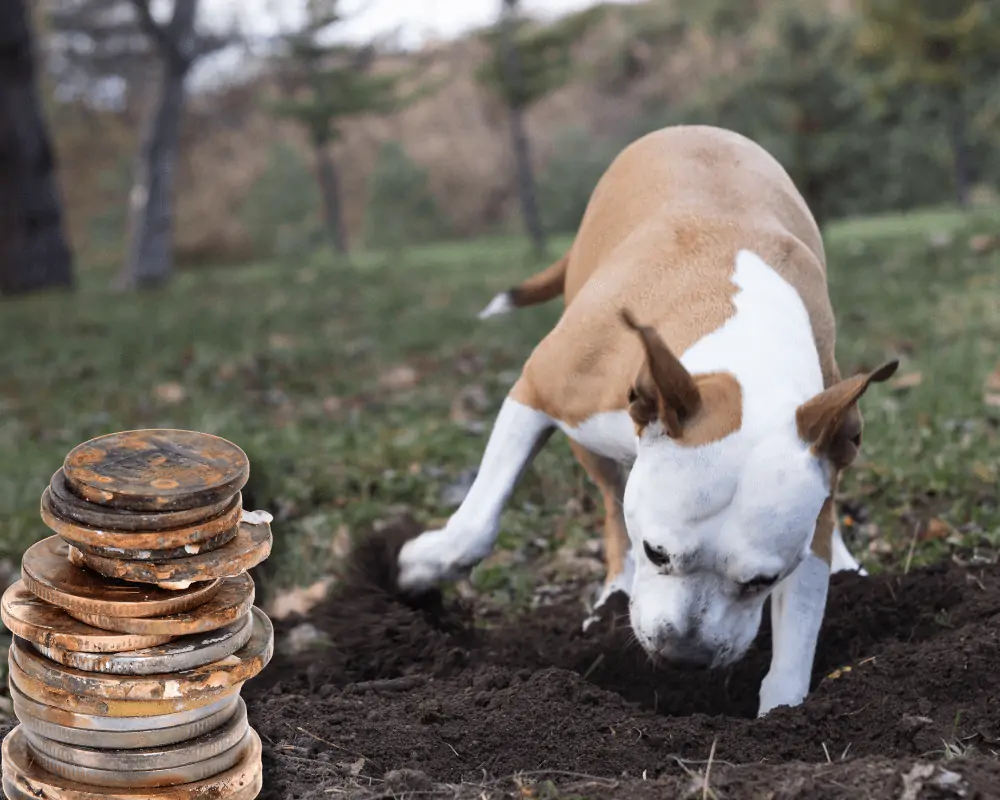
This can be done by talking to neighbors or historians. I mentioned this before, but I’d recommend going to the library to scavenge anything you can on the local history.
While finding land where buildings no longer exist would give you an edge on digging up older coins, don’t feel resigned to just these areas.
There will be plenty of buildings and meeting grounds in your area that have a long past and are still in use today.
Some familiar places for metal detecting for old coins are parks, churches, old school grounds, and beaches.
If you spend a bit more time on research and find an old abandoned home, even better.
Old home sites are perfect for finding older coins and relics.

Don’t limit yourself to the foundation of the house. Check the property for signs of everyday life.
This could be an area that was once used as an outhouse or signs of an old water well.
Old wells can really pay off. Sweep your metal detector around the base of the well, and then follow a path back toward the foundation of the house.
This is likely the same path used by residents 100 years ago. If any coins were dropped, you’d find them.
Are there any big trees in the yard?
Old trees are a pretty sure sign of past events. Because of its age and the shade it would’ve provided, the base of old or rotting trees most likely served as a picnic area for the family.
Or a gathering place for friends and neighbors to catch up.
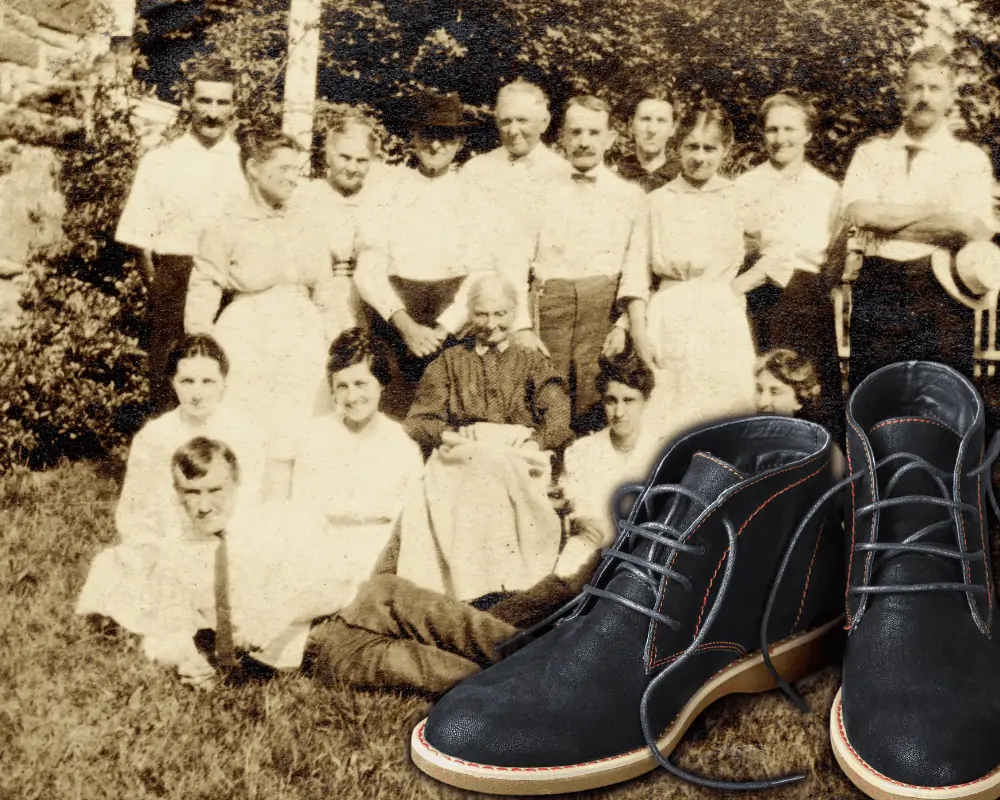
Put yourself in your ancestors’ shoes no matter what you’re treasure hunting for.
What did a typical day look like when cars were a luxury or didn’t exist? What did the people do with no running water or central air conditioning?
Role-playing in this way will open your eyes to new and untapped locations.
Places to Metal Detect Without Permission
You’ve already read about some of the best places to go metal detecting without permission.
They aren’t hard to find. But always check on current policies before you break out your shovel and pinpointer.
You may visit one public park where metal detecting is standard practice. That doesn’t mean every local park follows the same guidelines.

Considering that, here are some places to metal detect that don’t require permission most of the time.
- Fairgrounds
- Beaches
- Parks
- Your Own Property
- School Grounds
- Curb Strips
Usually, these places are open to the public. But again, be sure about it.
Public beaches are safe for metal detectorists, but beaches on state property will require permission.
The same goes for parks, as I already mentioned.
Most local parks are governed by the city government, and they might have a firm statute on metal detecting.

School grounds are public property, as long as it isn’t a charter or private school.
But use proper etiquette when treasure hunting here. I’d go during weekends or holidays when kids aren’t in school.
Best Place to Use Metal Detector on Beach
So you’ve decided on metal detecting at the beach. Good choice!
The beach is a hot spot for old and new finds. The ocean and changing of the tide bring some ancient history back to the surface.
Metal detecting the beach after a storm is even more beneficial to treasure hunters.
But where should you start on a beach? There’s a lot of sand and shore to cover. And you don’t want to spend your whole day in the wrong spot, do you?

Well, I’ve got some tips for you. Early on, I wasted a ton of time metal detecting the sand far away from the water.
I thought I was clever, thinking I’d uncover all the coins and jewelry vacationers had dropped on their way.
After I got some much-needed advice, I changed my method.
First, don’t spend your time metal detecting in the vast open space of the beach.
This is where no one sets up their umbrellas, and you’ll usually find some kids flying kites or playing volleyball.
I’m not saying you won’t find anything. But you’ll spend all your time in the wrong area.
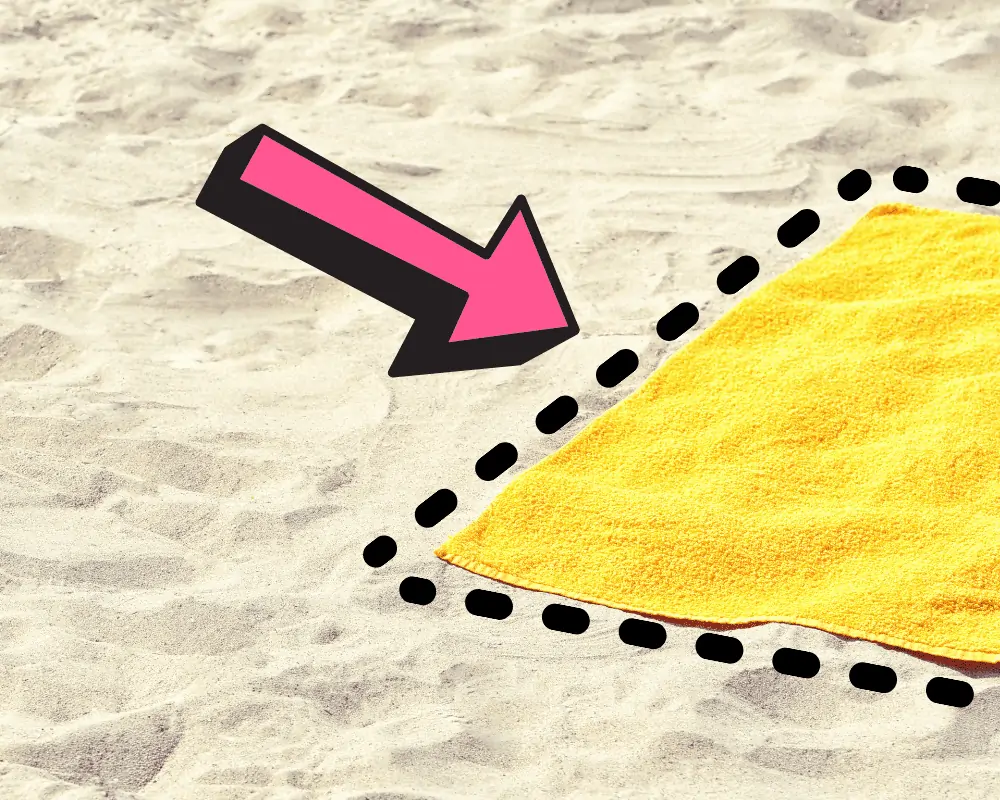
Instead, start metal detecting closer to the water line, where the sand is still dry.
You’ll know it’s the right place because you’ll see evidence of visitors set up their towels and coolers.
Specifically, look for the towel line.
The towel line is the part of the beach marked off with the imprint of beachgoer towels. Most people tend to stick together, so it shouldn’t be hard to tell where it starts.
I would grid the area and start hunting. It’s your choice how far down you go, but eventually, you want to make your way down to the water.
The waterline at low tide gives you the best chance at finding treasure other than the towel line.
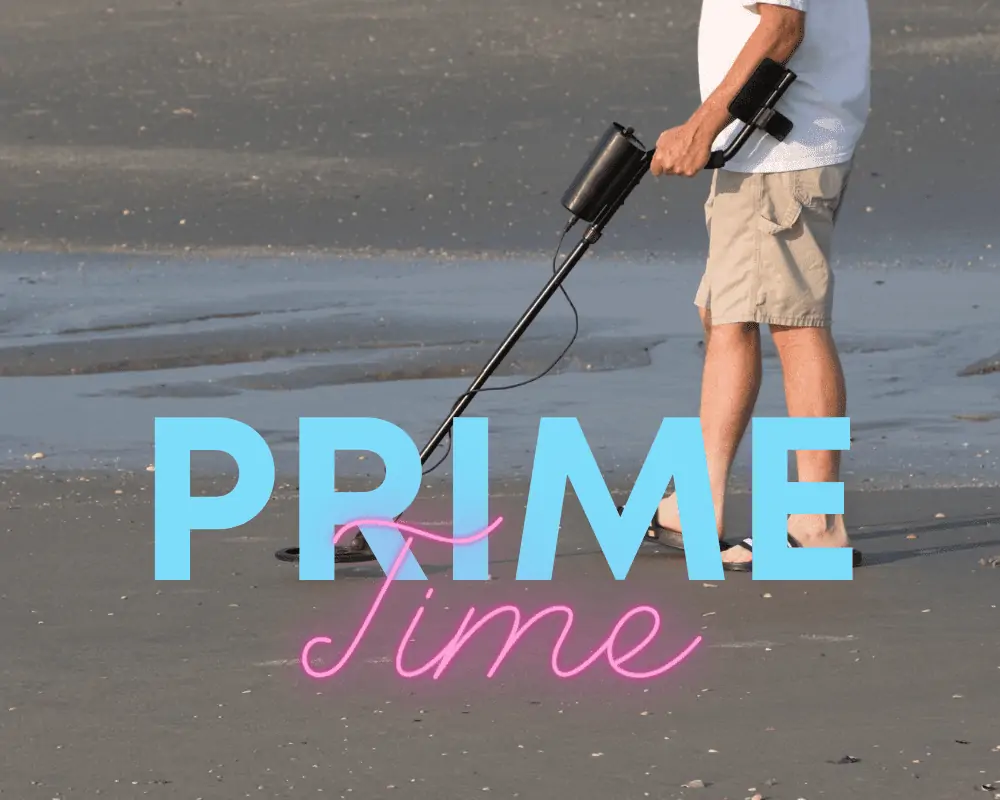
Try to find the trough or pockets as you make your way into the water. If you hit a sandbar, you’ve gone too far.
The trough is where any gold, jewelry, coins, or other metal item settles. But it won’t be there forever, so if you detect something, dig it up now.
If you have a suitable waterproof metal detector, you should go out into the water until it’s waist high.
Any farther and metal detecting gets difficult while you try and fight the current.
Between the towel line and the sand bar is where metal detecting offers up lost jewelry and coins in a high volume.
But it’s not the only place on the beach that should be on your radar.

Don’t forget to search the rock pools or rocky areas in general.
These rocks take what the ocean gives them and usually trap items from being pulled out with the tide.
Sometimes you’ll just find junk. But I’ve gotten lucky a few times.
Last summer, I found a gold bracelet while searching along the bay.
I couldn’t keep it, though. Once my daughter saw the little dolphin pendant, she called dibs.
Finally, here are some quick tips for heading out on the beach.
- Bring a proper metal detector. Saltwater beaches offer different challenges than freshwater beaches.
- Don’t forget to bring a sand scoop or shovel, a pinpointer, and other accessories for a wet and sandy environment.
- Learn about the tides and how they can affect your treasure hunt.
- Try and get out to the beach after a storm. There will be more sand turnover, and older items will get exposed.
Conclusion

I really hope I helped you Diggers find your next metal detecting spot. Maybe it’ll become a new favorite.
There are so many choices available to you. And if there’s a specific type of treasure you’re looking for, just refer back to my table above. It’ll set you on the right path.
No matter where you decide to go, just remember that the most important thing you can do is guarantee you don’t need permission. Or, if you need permission to hunt, try and get it in writing.
Until next time!
And will you succeed? Yes! You will, indeed! (98 and 3/4 percent guaranteed).
Dr. Seuss



